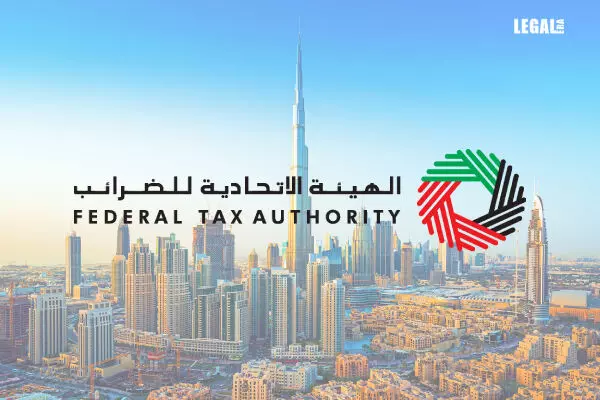- Home
- News
- Articles+
- Aerospace
- Artificial Intelligence
- Agriculture
- Alternate Dispute Resolution
- Arbitration & Mediation
- Banking and Finance
- Bankruptcy
- Book Review
- Bribery & Corruption
- Commercial Litigation
- Competition Law
- Conference Reports
- Consumer Products
- Contract
- Corporate Governance
- Corporate Law
- Covid-19
- Cryptocurrency
- Cybersecurity
- Data Protection
- Defence
- Digital Economy
- E-commerce
- Employment Law
- Energy and Natural Resources
- Entertainment and Sports Law
- Environmental Law
- Environmental, Social, and Governance
- Foreign Direct Investment
- Food and Beverage
- Gaming
- Health Care
- IBC Diaries
- In Focus
- Inclusion & Diversity
- Insurance Law
- Intellectual Property
- International Law
- IP & Tech Era
- Know the Law
- Labour Laws
- Law & Policy and Regulation
- Litigation
- Litigation Funding
- Manufacturing
- Mergers & Acquisitions
- NFTs
- Privacy
- Private Equity
- Project Finance
- Real Estate
- Risk and Compliance
- Student Corner
- Take On Board
- Tax
- Technology Media and Telecom
- Tributes
- Viewpoint
- Zoom In
- Law Firms
- In-House
- Rankings
- E-Magazine
- Legal Era TV
- Events
- Middle East
- Africa
- News
- Articles
- Aerospace
- Artificial Intelligence
- Agriculture
- Alternate Dispute Resolution
- Arbitration & Mediation
- Banking and Finance
- Bankruptcy
- Book Review
- Bribery & Corruption
- Commercial Litigation
- Competition Law
- Conference Reports
- Consumer Products
- Contract
- Corporate Governance
- Corporate Law
- Covid-19
- Cryptocurrency
- Cybersecurity
- Data Protection
- Defence
- Digital Economy
- E-commerce
- Employment Law
- Energy and Natural Resources
- Entertainment and Sports Law
- Environmental Law
- Environmental, Social, and Governance
- Foreign Direct Investment
- Food and Beverage
- Gaming
- Health Care
- IBC Diaries
- In Focus
- Inclusion & Diversity
- Insurance Law
- Intellectual Property
- International Law
- IP & Tech Era
- Know the Law
- Labour Laws
- Law & Policy and Regulation
- Litigation
- Litigation Funding
- Manufacturing
- Mergers & Acquisitions
- NFTs
- Privacy
- Private Equity
- Project Finance
- Real Estate
- Risk and Compliance
- Student Corner
- Take On Board
- Tax
- Technology Media and Telecom
- Tributes
- Viewpoint
- Zoom In
- Law Firms
- In-House
- Rankings
- E-Magazine
- Legal Era TV
- Events
- Middle East
- Africa
80% Income Inclusion For Reit Investors: Uae's Fta Issues Tax Clarification

80% Income Inclusion For Reit Investors: Uae's Fta Issues Tax Clarification
Introduction
The UAE’s Federal Tax Authority (FTA) issued a clarification on how corporate tax will apply to people and companies investing in Real Estate Investment Trusts (REITs), even if the REIT itself is exempt from tax.
Factual Background
The FTA has clarified that beginning from January 1, 2025, foreign and UAE-based investors in tax-exempt REITs will be required to pay corporate tax on 80% of the revenue generated by the REIT's real estate holdings in the nation. Moreover, income from leasing, selling, or otherwise utilizing real estate is included in this. The tax will be computed according to each investor's REIT stake.
Procedural Background
The new tax regime would affect resident and non-resident investors in REITs that are eligible as exempt funds, according to the FTA's latest notification. The action is a positive step for both domestic and foreign real estate industry participants, as it seeks to provide clarity about taxable income, exemptions, and compliance requirements.
Issues Involved
1. Whether the Taxable Income of a juridical person investing in a REIT will include the Immovable Property Income of the REIT.
2. Whether a REIT's distribution within nine months from the end of its Financial Year affects the investor's tax liability.
Reasoning and Analysis
The FTA's clarification outlines that the Taxable Income of a juridical person investing in a REIT will be adjusted to include 80% of the prorated Immovable Property Income of the REIT. However, if the REIT makes a distribution within nine months from the end of its Financial Year and the investor has disposed of its entire Ownership Interest, the investor will not be subject to Corporate Tax on the Immovable Property Income.
Final Decision
The FTA's clarification provides information on the tax implications and compliance duties of REITs and their investors. Furthermore, REITs must disclose specific information to investors, such as the amount of Immovable Property Income and tax depreciation deductions.
Law Settled
This clarification reinforces the principle that REITs can be exempt from Corporate Tax if they meet specific conditions, and provide clarity on the tax implications for investors. The FTA's clarification is expected to boost investor confidence in the UAE's real estate market.



